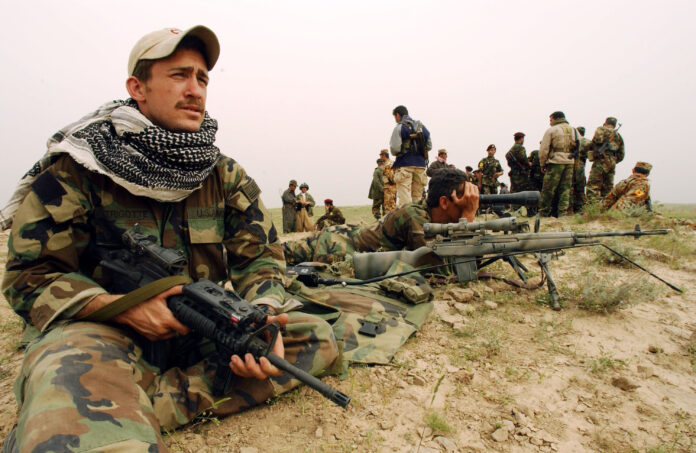Authors: Andrew L, Mick Mulroy, Kenneth Tovo
Affiliation: CIA Senior Intelligence Officer (Retired, 25 years of service) and former US Marine (infantry and reconnaissance officer); Middle East Institute; Lieutenant General (Retired, US Army, 35 years) and former Green Beret.
Organization/Publisher: Middle East Institute
Date/Place: August 12, 2021/UK
Type of Literature: Policy Analysis
Number of Pages: 17
Keywords: Irregular Warfare, Iraq War, Proxy Forces.
Brief:
Irregular warfare (IW) is an increasingly important tool against adversaries, and was used by the United States to pave the way for its Iraq invasion and its War on Terror. IW is an auxiliary for conventional war and the two usually commence hand-in-hand, yet IW is more regular with a continuity on some level to maintain strategic advantages. The Kurds are the US’ most successful example of IW, which started with relations from 1991 humanitarian operations and then evolving to cooperation during the Iraq invasion and later the war against ISIS. States such as Russia or Iran that lack in conventional warfare (compared to the US) have instead invested in IW and have been able to have robust capabilities to level the playing field. Nonconventional options like cyber warfare, proxy forces, false media outlets and disinformation campaigns are becoming crucial tools, and proved successful in Ukraine and Syria. The US ought to invest in IW if it wants to keep a favorable balance of power in a multi-polar security environment, with unconventional conflicts being the future of great power competition.
By: Omar Fili, CIGA Research Assistant




